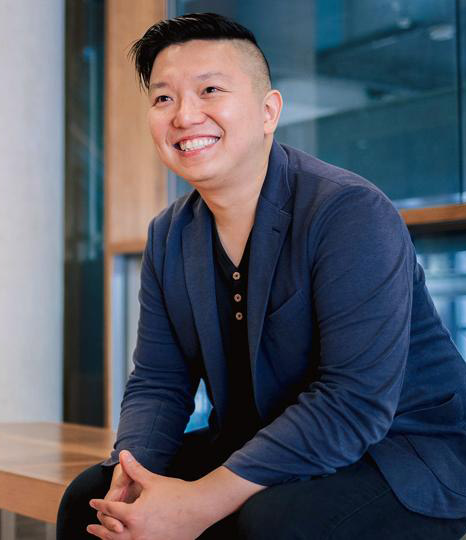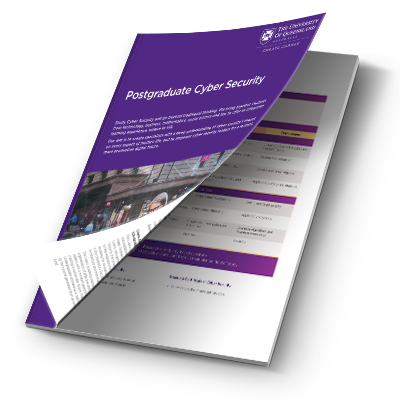Study with us
Our programs
Undergraduate
Bachelor of Computer Science (Major in Cyber Security)
Students can undertake a cyber security major within the Bachelor of Computer Science where they will learn the fundamental processes and practices required to protect computing systems from attack, damage or unauthorised access. This program focuses on secure programming techniques and ethical hacking to safeguard individuals, business and governments against cybercrime.
Postgraduate
Graduate Certificate in Cyber Security
This six-month program covers a range of key cyber security topics, giving you a global overview and understanding of cyber security’s impact on every aspect of modern life and its relevance across different academic disciplines. You’ll learn about the major cyber security challenges facing the world and a range of response including technical, organisational, geo-political, policy and governance.
Graduate Diploma in Cyber Security
In this one-year full time equivalent program you’ll be able to dive deeper into advanced cyber security courses in one of four fields: Cyber Defence, Leadership, Cyber Criminology or Cryptography. The diploma offers the unique opportunity to gain integrated learning and advance your professional network by working with a student cohort with diverse backgrounds from technology, business, mathematics and humanities during the first half of the program before specialising in your chosen field.
The multi-disciplinary Master of Cyber Security designed to empower a new generation of cyber security leaders.
The program is aligned to the National Institute of Standards and Technology’s internationally-recognised Cyber Security Education (NICE) framework, taught by leading academics and industry professionals, with a truly inter-disciplinary approach to the field. It brings together students from technology, business, mathematics, law and social science to offer an integrated learning experience.
You will develop an understanding of the global cyber security landscape, informed by industry and government experts, to find better ways to defend, adapt and lead for a resilient, more productive digital world. Wherever you’re positioned in your career, you’ll look at the field from a different angle, ask bigger questions, and find new and exciting ways to meet the security challenges of the future.
The program has been designed with a universal foundation group of courses taken by all students in the first semester. Here you will gain a thorough understanding of the fundamentals of cyber security and a global perspective of the Cyber Security sector. You’ll understand how different disciplines interact and have opportunities to collaborate with future colleagues from these diverse areas before specialising in one of four fields of study:
Cyber Defence - focuses on the technical side of cyber security
Leadership - focuses on strategic cyber security management
Cyber Criminology - focuses on the motivations, methodologies and response to cyber crime
Cryptography - focuses on the design, implementation and research in cryptography
The program may be studied full time or part time. Depending on your background and chosen field of study it may be completed in 2 years (32 units) full time or 1.5 years (24 units) full time or part time equivalent.
|
Interdisciplinary core |
|||
|
Fundamentals of Cyber Security Information Security Essentials Cyber Security Governance, Policy, Ethics and Law Cyber Criminology and Global Security |
|||
|
Field of study |
|||
Cyber Defence |
Leadership |
Cyber Criminology |
Cryptography |
|
Foundation courses |
|||
| Introduction to Software Engineering | Management Frameworks | Introduction to Criminology | Linear and Abstract Algebra and Number Theory |
| Computer Systems Principles and Programming | Integrated Strategic Analysis | Introduction to Criminal Justice | Discrete Mathematics II |
| Database Principles | Leading People and Teams | Australian Crime Policy | Calculus and Linear Algebra I |
| Discrete Mathematics | Business and Corporate Law | Crime Prevention Policy and Practice | Applied Probability and Statistics |
|
Advanced courses |
|||
| Vulnerability Assessment and Penetration Testing | Corporate Governance Law and Practice | Cyber Crime Foundations | Coding and Cryptography |
| Artificial Intelligence for Cyber Security | Cyber Security Risk Management and Controls | Cyber Crime Offending | Applied Cryptography |
| Cyber Incident Response | Cyber Security Human Capital Leadership | Regulation, Investigation and Responses | Quantum Algorithms and Quantum Computing |
| Electives | Electives | Electives | Electives |
|
Research or industry based capstone |
|||
|
Cyber Security careers |
|||
| Information Security Architect | Chief Information Security Officers (CISO) | Cyber Crime and Privacy Policy Advisor | Signals Intelligence Officer |
| Cyber Security Analyst | Chief Executive Officer (CEO) | Digital Forensics Expert | Malware Analysts |
| Cyber Security Consultant | Executive Board and Director Positions | Cyber Crime Investigator | Cryptographic Systems Engineer |
| Penetration Tester | Information Security Manager | Government Policy Advisor | Financial and Payment Systems Engineer |
| Information Security Specialist | Entrepreneurship in Cyber Security | Anti-money Laundering Investigator | Defence Intelligence Officer |
| Security Systems Administrator | Managerial Positions in IT and Cyber Security | Dark Web Intelligence Expert | Applied Cryptographer |
Visit UQ's Future Students website to learn more about the Master of Cyber Security and apply.
Student activities
- UQ Cyber Squad
- UQ's elite student cyber security competition squad focused on online, domestic and international cyber competitions e.g. Cyber9/12, DEFCON CTF.
- DEAD BEEF Society
- A student society focused on upskilling like-minded students in cyber security technical skills.
- Summer and Winter Research Programs
- Students interested in research can work on scoped research projects in cyber security across the campus, often with industry partners.
- SOC experience
- From Sem 2, 2020 UQ Cyber Security students will be able to gain experience working in a training security operations centre (SoC), in collaboration with UQ's own Information Technology Services and AusCERT.
- ASDP Cyber Experience
- ASD CyberEXP will take you through a day in the life of five cyber specialist experts working in the Australian Signals Directorate helping to secure the government’s information, services and personnel. This program is open to technical as well as non-technical students studying subjects outside of the traditional computer science/IT realm (e.g. law, psychology, business, criminology, etc).
Ongoing education
UQ’s Research Group and AusCERT conduct regular Cyber Security Workshops aimed at upskilling capability for a range professionals from digital technology teachers to IT and security specialists.
Scholarships
There are a range of scholarship opportunities available whether you're new to UQ, joining us from overseas, or midway through a research degree, including the HP Women in Cyber Security scholarship.
Visit UQ Scholarships to learn more and apply.
How do you stop a cyber bank heist?
Study guides
Download the UQ Postgraduate Cyber Security study guide (PDF, 916.4 KB)



